Trace Elements
All information about "Trace Elements" and the related magazine articles can be found here.
Our articles are written clearly and link to scientific studies where relevant. This is how we meet our own standards: we regularly deliver new, high-quality content for you—free of charge, no sign-up required, with the highest possible benefit to you.
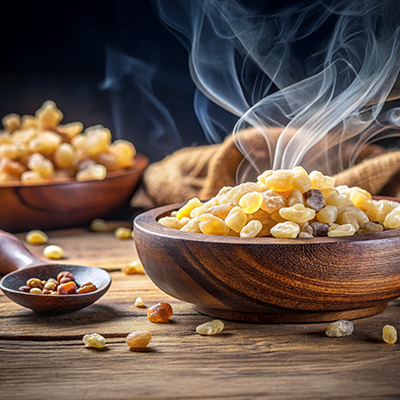
Frankincense: the versatile resin of nature
Discover the history, applications and valuable ingredients of this traditional natural wonder.
Frankincense has inspired people for thousands of years with its fragrance and versatile applications. Whether in ceremonies or as a potential remedy - find out what makes this special resin so unique.

Hashimoto's thyroiditis: Understand, recognize, treat
Find out all about the causes, symptoms and possible treatment approaches for the most common thyroid disease.
Hashimoto's thyroiditis is the most common autoimmune disease of the thyroid gland. Find out how the disease develops, what symptoms can occur and what treatment options are available.
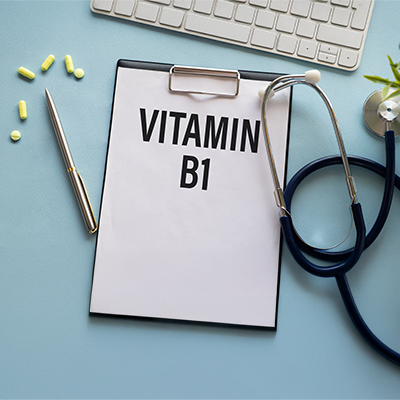
Beriberi: the underestimated consequence of a vitamin B1 deficiency
Find out how beriberi disease manifests itself, what causes it and how you can prevent a thiamine deficiency.
Beriberi is caused by a lack of vitamin B1 (thiamine) and can have serious consequences for the body. Read about the symptoms, how the disease is treated and how you can prevent it.
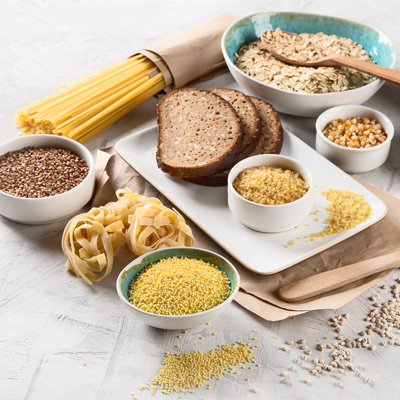
Polysaccharides: The invisible powerhouses for your diet
Find out how these complex carbohydrates support your health and what benefits they can offer the body.
Polysaccharides are complex carbohydrates that are found in many foods. Discover what role these polysaccharides play in our diet and what functions they fulfill in the body.
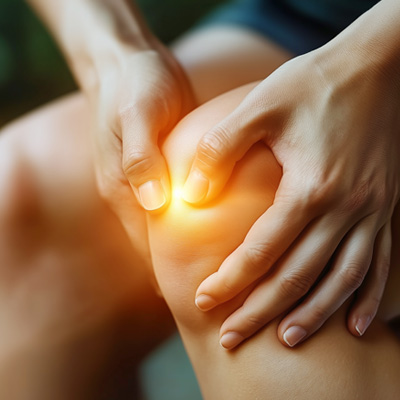
Glucosamine: a natural building block for your joints
Find out how glucosamine can help maintain joint structure.
Glucosamine is a natural component of our body and plays a central role in joint health. In this article, you will learn how it can support your joints and what you should keep in mind when taking it.
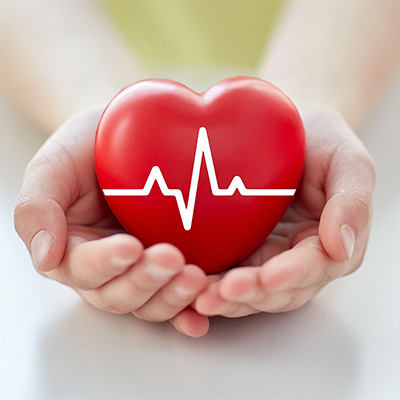
The cardiovascular system: your engine for health and energy
Discover how your cardiovascular system ensures that nutrients and oxygen reach every cell every day – and why it is so important to keep it healthy.
The cardiovascular system is our body's vital transportation system. It delivers oxygen and nutrients to every cell, keeping us moving every day. Learn how it works and why keeping it healthy is so important.

Micronutrients: small building blocks – big impact on your health
Find out how essential micronutrients can support your body and why they are indispensable, especially in times of stress and an unbalanced diet.
In today's hectic world, a balanced diet and vital substances often take a back seat. However, micronutrients – such as vitamins, minerals and trace elements – are essential for your health. Find out how these little helpers have a big impact and why they are indispensable in your everyday life.

Inflammation in the body: a protective mechanism with risks
Find out how inflammation protects the body and when it can become a health risk. Discover tips for helping your body to deal with inflammation.
Inflammation is the body's natural response to harmful influences. It protects us, but it can also become chronic and pose a health risk. Learn more about the balance between protection and risk and how you can help your body stay healthy.
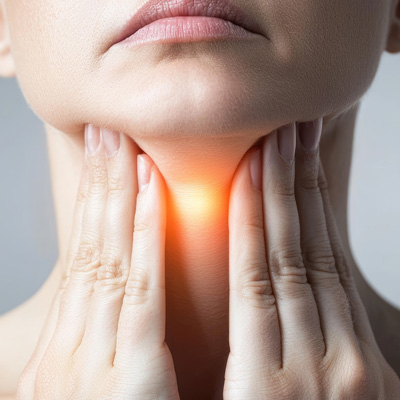
Hyperthyroidism: When the body gets out of balance
Discover the signs of an overactive thyroid and learn how it can affect physical and emotional balance.
An overactive thyroid can throw many bodily processes out of whack, causing everything from constant restlessness to severe mood swings. Learn how to recognize the signs of an overactive thyroid and the steps you can take to get it under control.
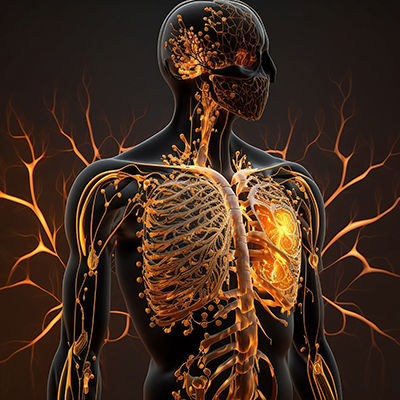
Mysterious autoimmune disorders
When the immune system gets out of control.
Find out what happens when the immune system suddenly attacks the body's own cells, what diseases there are and what symptoms you should take seriously in order to be able to act early.

Citrulline – the natural energy booster
Find out how citrulline can help support your performance and endurance in everyday life.
Citrulline can support your energy and endurance, promote recovery and improve blood flow. Discover how this amino acid derivative can help you in your daily life.
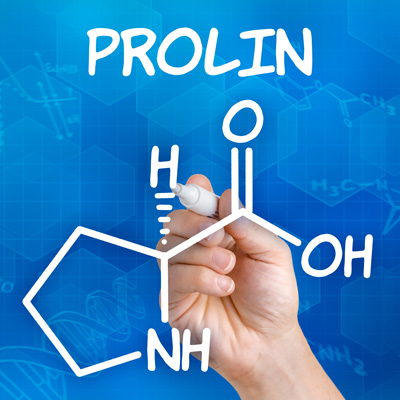
Proline: the building block for healthy joints
Discover the benefits of proline for your joints, skin and connective tissue.
Proline is an amino acid that plays an important role in healthy joints, skin and connective tissue. Find out how proline can help strengthen your joints and keep your skin elastic. Immerse yourself in the world of amino acids and their benefits for your health!

Fibromyalgia: living with chronic pain
Understand, relieve and live better - your source of knowledge and support for fibromyalgia.
Fibromyalgia affects millions of people worldwide and causes chronic pain, fatigue and sleep disorders. Find out what treatment options are available to alleviate symptoms and improve quality of life. Discover tips and strategies for a better well-being.
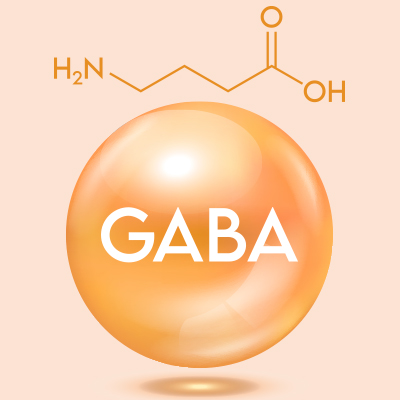
Say goodbye to stress - hello GABA!
Do you often feel stressed and overworked? GABA, a natural neurotransmitter, could be the solution. Find out how GABA helps your body to reduce stress, calm your nerves and promote a feeling of deep relaxation.
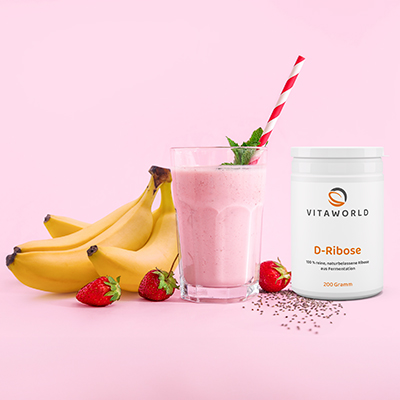
D-Ribose Power-Smoothie
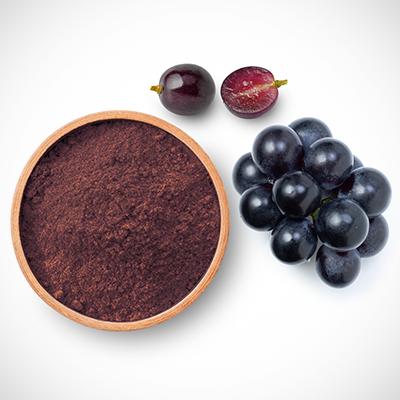
OPC - antioxidants for better health!
Why OPC can fight oxidative stress
Every day we fuel our health with negative influences, sometimes consciously, sometimes unconsciously. Find out here how oxidative stress damages our body and how oligomeric proanthocyanidins (OPC) can strengthen it.
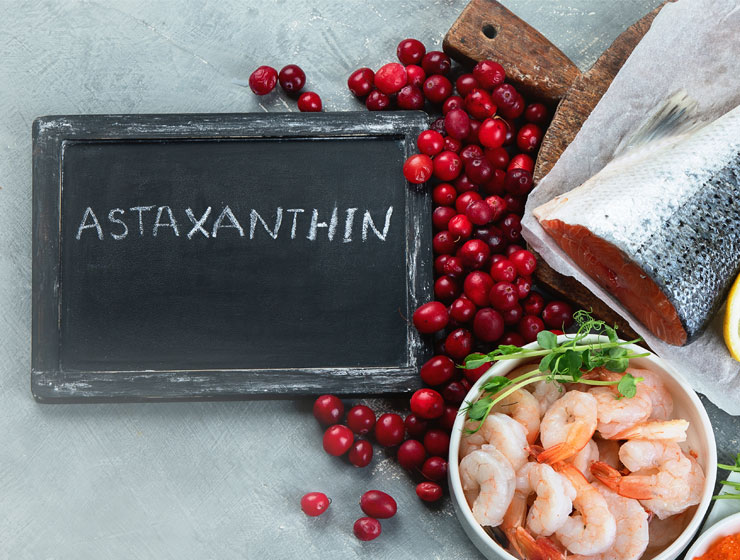
Astaxanthin - the "super antioxidant"?
Good for skin, joints and immune system
Astaxanthin is said to have a greater effect than other carotenoids, vitamin E and even vitamin C - what's behind this?
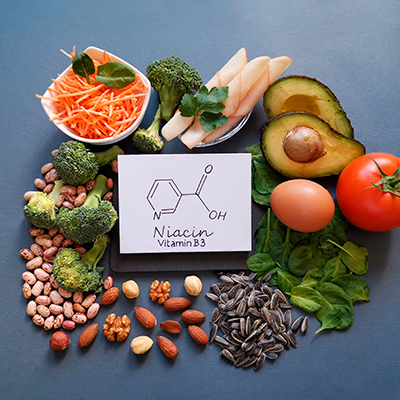
Niacin - a versatile B vitamin!
This is how vitamin B3 works in the body
As an essential vitamin, niacin plays an important role in the human body. But what exactly is this nutrient and how can it benefit our health?
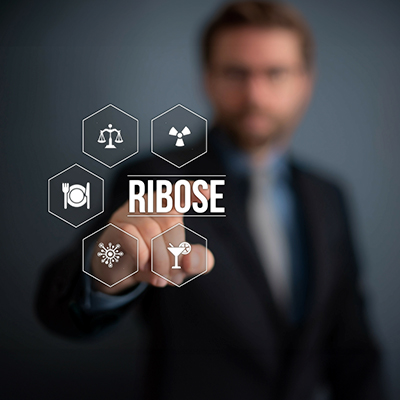
D-Ribose - a natural power up
From the muscles to the heart: D-ribose is of great importance for our health and performance. As a component of all human cells, it is essential for the body's energy supply and regeneration. Health-conscious people and athletes therefore rely on this natural option to support their vitality and their cells. Find out more about D-ribose here now!
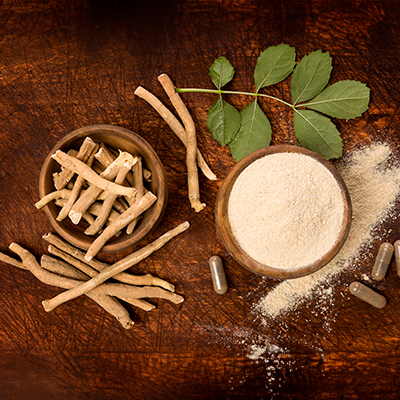
Ashwagandha - a real health all-rounder?
The powder from the sleeping berry is an integral part of Ayurvedic medicine and is valued for its many health-promoting properties. Read more now.
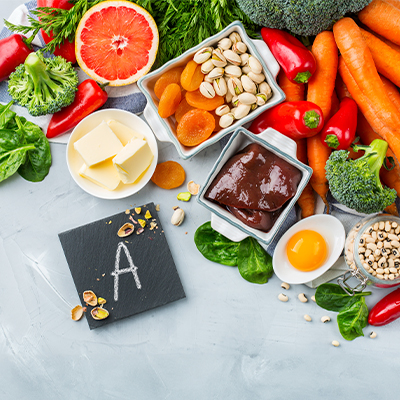
All you need to know about vitamin A
Vitamin A - also known as retinol - has become an important ingredient in anti-ageing skincare products. But it also has many other benefits.

Not in the mood for anything?
Listlessness, apathy, fatigue - seemingly harmless terms that can drastically reduce the quality of life of those who suffer from them. How these complaints differ and what diseases and causes may be behind them.

How creatine affects fitness
Creatine is primarily known for its effect on muscle building - but it plays a far more versatile role in the human body. We have summarised everything you need to know about this special substance for you in this article.
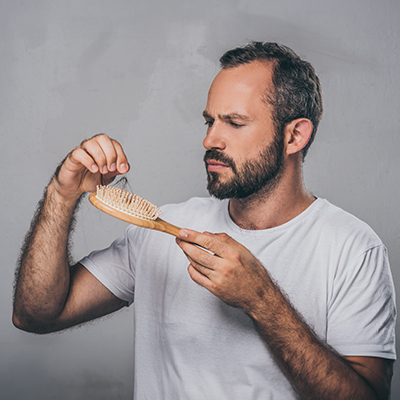
These conditions can cause hair loss
Hair loss, sudden hair loss, circular hair loss - when the hair on your head disappears, it can be a huge psychological burden for many people. What diseases can cause hair loss.
Trace elements: small amounts, big impact on health
Sometimes it's the little things in life that make the biggest difference – and that also applies to health. Trace elements are perfect examples of these small but crucial components. Although the body only needs them in the smallest of quantities, they are essential for our well-being. These tiny minerals ensure that the body functions well all round, whether it's coping with a stressful day at work, achieving personal fitness goals or simply getting a daily boost of energy. We have all the important information!
What are trace elements?
Most people have heard of them, but what exactly are these trace elements? Trace elements are essential minerals, i.e. chemical elements that the human body needs only in tiny amounts – often only a few milligrams or even micrograms per day – but which play a crucial role in health every day [2]. Despite their low concentration in the body, they are involved in quite a few vital functions.
Important: The body cannot produce them itself, which is why they have to be obtained from food.
They support the work of numerous enzymes in important chemical reactions, promote hormone production, contribute to cell regeneration and are also essential for the formation of bones and tissue [4]. So if that's not important for our body! Although essential trace elements are only present in trace amounts, they have an enormous effect on the proper functioning of the body and are indispensable for our well-being.
What is the difference between trace elements and bulk elements?
Bulk elements are minerals such as calcium or magnesium. The main difference between trace elements and bulk elements lies not only in the quantity required, but also in their role and distribution in the body:
Bulk minerals are needed in larger quantities (milligrams to grams) and are often stored in bones, teeth and body fluids. They play a central role in maintaining structure and function, such as the stability of bones or the regulation of heart rhythm [3].
In contrast, trace elements are only needed in very small amounts (micrograms to milligrams) and are often involved in enzymatic processes or as cofactors in various biochemical reactions. They are often present in the body in very small concentrations, but their functions are equally crucial. Trace elements support specific biological processes such as oxygen transport or cell regeneration [3].
What are the most important trace elements and what are they for?
In small quantities, but with an enormous effect, trace elements are essential for the proper functioning of the body. The following five essential trace elements (there are 14 in total) are indispensable for the human body because they fulfill important tasks:
Iron
Iron is essential for the transport of oxygen in the blood. It is a major constituent of hemoglobin, the protein in red blood cells that carries oxygen from the lungs to the cells. Iron deficiency can lead to iron-deficiency anemia, a condition characterized by fatigue, weakness, and pallor [6,14].
Zinc
Zinc plays a key role in the immune system and is involved in over 300 enzymatic reactions. It aids wound healing, which is why it is used in many wound creams. It also promotes growth and cell division and helps the body to defend itself against infections. In addition, zinc is important for the metabolism of carbohydrates, proteins and fats [7].
Selenium
Selenium is a powerful antioxidant that protects cells from damage by free radicals – unstable molecules that can attack other cell structures due to their reactivity and are formed by environmental pollution, UV radiation or stress. Selenium is also important for thyroid function and helps regulate the metabolism. In addition, selenium-containing enzymes support the immune system and have anti-inflammatory properties [8]. A real all-rounder!
Copper
Copper is essential for the formation of connective tissue, the production of melanin and energy metabolism. It also plays an important role in the functioning of the nervous system and supports the immune system. A copper deficiency can have long-term consequences and lead to anemia, bone abnormalities and neurological problems [9].
Iodine
Iodine is necessary for the production of thyroid hormones, which regulate metabolism. These hormones influence many physiological processes, including growth, energy production and protein synthesis. An iodine deficiency can lead to hypothyroidism, which can manifest itself in fatigue, weight gain and sensitivity to cold. Adequate iodine intake is particularly important in nutrition during pregnancy to ensure the healthy development of the fetus and avoid complications [13].
Other essential trace elements include manganese, chromium, molybdenum, fluoride, cobalt, nickel, silicon, vanadium and tin.
Minerals: What is the recommended daily dose?
The daily requirement of trace elements varies depending on age, gender and state of health. Here are the current recommendations of the DGE [1]:
- Iron: adults: 10-15 mg, pregnant women: 30 mg, breastfeeding women: 20 mg
- Zinc: adults: 7-10 mg, pregnant women: 7-10 mg (depending on the phytate content of the diet), breastfeeding women: 11 mg
- Selenium: adults: 60-70 µg, pregnant women: 60-75 µg
- Iodine: adults: 200 µg, pregnant women: 230 µg, breastfeeding women: 260 µg
- Copper: adults: 1-1.5 mg
- Manganese: adults: 2-5 mg
These amounts serve as a general guideline. Individual needs may vary depending on your diet and state of health.
Which foods are rich in important trace elements?
The following list shows which foods are rich in important trace elements and how you can cover your daily needs in a natural way.
- Red meat, offal such as liver (iron, selenium, copper, zinc)
- Fish, seafood, oysters (iron, zinc, iodine, selenium)
- Seaweed (iodine, iron, zinc)
- Pulses (iron, zinc, copper)
- Wholegrain products (iron, zinc, selenium, copper)
- Green leafy vegetables (spinach) (iron)
- nuts, seeds (iron, zinc, copper, manganese)
- Brazil nuts (selenium, in moderation)
- iodized salt (iodine)
- milk products (iodine, zinc)
- eggs (selenium, zinc, iron)
A balanced diet with a variety of plant-based and animal-based foods can usually cover the need for all essential trace elements. Whole grain products, nuts, seeds, legumes and green vegetables are particularly valuable sources of various trace elements. Foods rich in vitamin C, such as bell peppers, citrus fruits or berries, can also help the body absorb iron from plant-based foods. Whether you are vegan, vegetarian or eat meat, there are many ways to supply the body with the nutrients it needs.
What influence do trace elements have on the immune system?
Important trace elements such as zinc and selenium play a key role in supporting the immune system. They promote the production of white blood cells and help the body fight off infections [10]. They also have an antioxidant effect and protect cells from oxidative stress caused by free radicals.
Studies show that an adequate intake of trace elements can reduce the risk of chronic diseases. For example, selenium deficiency is associated with an increased risk of cardiovascular disease [12]. Research also suggests that zinc can shorten the duration and severity of colds [7].
Vitamins: the power partners of trace elements
Vitamins and trace elements are real team players when it comes to health. Here are the most important partnerships:
- Vitamin A needs zinc, iron and other substances for transportation and to develop its active form [5]
- Vitamin B1 works closely with magnesium to keep the carbohydrate metabolism going
- Vitamin B2 supports iron absorption together with zinc
- Vitamin B6 needs magnesium for reinforcement
- Vitamin B12 uses folic acid and cobalt to get involved in blood formation [3]
- Vitamin C ensures that iron from plant sources is better absorbed and supports zinc in strengthening the immune system [3]
- Vitamin D is a real bone friend and, in combination with calcium, ensures strong bones. Magnesium helps convert vitamin D into its active form [3]
- Vitamin E and selenium are a dynamic duo that acts as an antioxidant to protect cells from damage [3]
And don't forget: Vitamin K works together with calcium to keep bones strong and is supported by magnesium to promote bone health [3]. But what to do in case of vitamin deficiency? Here you will find valuable information!
Dietary supplements: when are they useful?
Dietary supplements can be useful as an addition to a healthy diet if the diet alone does not cover the need for trace elements, e.g. in certain diets, vegetarian or vegan diets or in special phases of life such as pregnancy and breastfeeding.
During pregnancy, an adequate intake of iodine, iron and folic acid is essential [13]. Folic acid should be taken in the form of capsules to support cell division and fetal growth and to reduce the risk of neural tube defects in the unborn child [13].
Important: Supplementation should always be done in consultation with a doctor to avoid possible risks from overdosing.
What are the symptoms of a deficiency?
A deficiency of trace elements can manifest itself in a variety of ways. Typical signs of iron deficiency are fatigue, pale skin and concentration problems. An iodine deficiency can lead to an enlarged thyroid gland (goiter), while zinc deficiency is often characterized by a weakened immune system and delayed wound healing. Find out more about the signs of zinc deficiency here!
Risk groups
Certain groups of people are at increased risk of a trace element deficiency. These include pregnant and breastfeeding women, the elderly, and people with chronic illnesses or special diets. Iron is a particular issue here, because iron deficiency is considered the most common deficiency disease worldwide [11]. Vegetarians and vegans should pay particular attention to their iron and zinc intake, as plant-based foods contain less bioavailable iron than animal-based foods..
Preventive measures
A balanced diet is the best way to prevent a deficiency of trace elements. The German Nutrition Society (DGE) recommends covering your daily nutrient intake with a varied diet that is rich in natural sources of trace elements [1]. For at-risk groups, targeted supplementation with food supplements can be useful, but this should be done in consultation with a doctor. Regular blood tests can help to detect a deficiency at an early stage and to take targeted action against it.
Sources
[1] https://www.dge.de/wissenschaft/referenzwerte/
[2] https://flexikon.doccheck.com/de/Spurenelement
[3] https://www.oege.at/wissenschaft/nahrungsinhaltstoffe-vitamine-mineralstoffe/
[4] https://www.who.int/health-topics/micronutrients
[5] https://www.ncbi.nlm.nih.gov/books/NBK234920/
[6] https://www.who.int/health-topics/anaemia
[7] https://ods.od.nih.gov/factsheets/Zinc-HealthProfessional/
[8] https://ods.od.nih.gov/factsheets/Selenium-HealthProfessional/
[9] https://ods.od.nih.gov/factsheets/Copper-HealthProfessional/
[10] https://www.ncbi.nlm.nih.gov/pmc/articles/PMC7019735/
[11] https://www.kbv.de/media/sp/KBV_LaborDiagnostik_Eisenmangel.pdf
[12] https://www.cochranelibrary.com/cdsr/doi/10.1002/14651858.CD009671.pub2/full/de
[13] https://mobil.bfr.bund.de/cm/350/jod-folat-folsaeure-und-schwangerschaft.pdf
